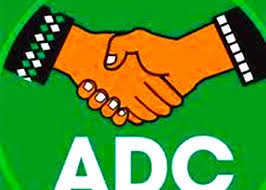“Belarus’ President Alexander Lukashenka said in 1994 that the Belarusian Language was a poor one, unfit for expressing anything grand,” elucidated Igar Gubarevich, a senior analyst of the Ostrogorski Centre in Minsk.
Katerina Barushka, a reporter for The Guardian in Minsk, enthused at a public presentation on Wednesday 28 January 2015, “President Lukashenka played a key role in stigmatising the language in favour of Russian, and in the years that followed, Belarusian became the language of the marginalised political opposition.”
Why Belarus is mocked, cultural-wise
With her scrawny national identity, the mock name of Belarus is “Belorussia” amongst psychoanalysts.
This is because about 70% of the countrymen and women have been influenced to speak the Russian Language.
For example, the influence of Russia in Belarus made the natives to speak mixed language, which linguists characterised by Russian-Belarusian, or freshly called “trasianka”.
Conversely, it’s disturbing to connoisseurs to meet-halfway the fact that hardly is there any higher institution of learning where the students are taught in the native Belarusian Language.
Another concern is that about 11% daily tabloids are printed in Belarusian. The citizens, without doubt, have relegated the Belarusian Language to the background if their president could make a derogatory comment against their native language. Although, Belarusian and Russian Languages are the official languages in the Constitution of Belarus.
Where the rain of ill-cultural identity started to beat Belarusians
Belarusians perceivably believe till date that they are still in the defunct Soviet Union, where the Russian Language was fad.
For instance, checks revealed that the Pahonian coat of arms is traceable to the era of the GDL and since 1917, has been in use as a sign of the political rival, awaiting today.
In 1918, when Belarus National Republic (BNR) was unrecognised, but celebrated as “fascist”, the flag had been official under German occupation.
It was made official flag again in 1991 and was replaced by the new-fangled bureaucratic imagery in a referendum in 1995.
“The national emblem of Belarus, which replaced the historic Pahonia arms in a 1995 referendum, features a ribbon in the colors of the national flag, a map of Belarus, wheat ears and a red star.
“It is sometimes referred to as the coat of arms of Belarus, although this is incorrect due to the lack of several heraldic elements.
“The emblem is an allusion to one that was used by the Byelorussian SSR, designed by Ivan Dubasov in 1950, with the biggest change being a replacement of the hammer and sickle with an outline map of Belarus,” according to Wikipedia.
Even the establishments of national dogma in all educational formations, to the encouragement of novel state-owned heroes of which many have emerged from sport, have not really helped Belarus to attain a desired national identity.
Apart from being influenced by the Russian Language, it’s surprising to onlookers that Belarus still has official national flag and the coat of arms that are very analogous to that of the Soviets.
The Belarus Project, which provided fresh view on Belarus in 2012, said that this emphasises the official historical narrative.
The exasperating angle to it is that not only is the Russian Language the major language being spoken by Belarusians or the official national flag and the coat of arms that of the Soviets, Belarusians also practice Russian cultures.
This has made analysts to characterise the country as an ill-cultural country. Upon that Belarus is an independent country obtained in 1991, but founded in 1939, during the Soviet period, the media still sees her as nationless.
The paradigm shift is because of the dearth of cultural identities, which has caused much confusion among the citizens.
Western influence
A statement by Hands4Belarus submitted by Anna (Poland) and Artyom (Belarus) in 2012, said, “Due to historical factors, the formation of Belarusian national identity was not at all straightforward: being on the crossroads of Europe the Belarusian territory was often re-divided and annexed to more powerful neighbours.”
Investigation by the source further revealed why Belarus is a country that is in search of identity, saying, “The official school of history underlines the negative impact of Western presence in Belarus, highlighting the suppressions during German and Polish occupations and the peasant role of Belarusians during these times.”
Adding, the source revealed, “In line with the Russian Orthodox Church, official rhetoric promotes the idea of pan-Slavism, linking it to the Russian rule and the diffusion of religion in Belarus. Yet, the official approach clearly lacks historical national heroes.”
Dwindling hope for revival
The Zviazda, a Belarusian-language newspaper started a series of discussions with Belarusian envoys and other leading diplomats in July 2014, in the language.
“A language policy transformation in the foreign ministry is rather happening exceedingly leisurely,” said media reports.
Piotr Krauchanka, the foreign minister in mid 90s, held meetings in the Belarusian Language; some diplomats especially the attachés to Krauchanka’s assistants were taught the language by the ministry-paid coach.
“On 19 February, 2015, Foreign Minister Vladimir Makei publicly recited the poem – Motherland – written by Janka Kupala, a famous Belarusian poet. Two weeks later, his deputy, Alena Kupchyna, inaugurated an art exhibition in perfect Belarusian,” Igar Gubarevich said in Belarus Digest of 6th March, 2015.
Yet, there is huge vilification on the line: Most diplomats in-spite-of-everything barely use the Belarusian Language.
“Everything changed when Lukashenka arrived. The ministry has never expressly prohibited or penalised the use of Belarusian by diplomats in their work, though it has long failed to encourage or promote it either,” said Gubarevich.
However, for the first time in his two decade-long rule, according to Katerina Barushka, Lukashenko is facing unsullied apprehensions about Russia’s weight above Belarus and has started to exhibit symbols that he may be having a change of mind; this has rented ovation in the air amongst Belarusian speakers.
Odimegwu Onwumere is a Poet/Writer; he writes from Rivers State, Nigeria. ([email protected]). Tel: +2348057778358.


